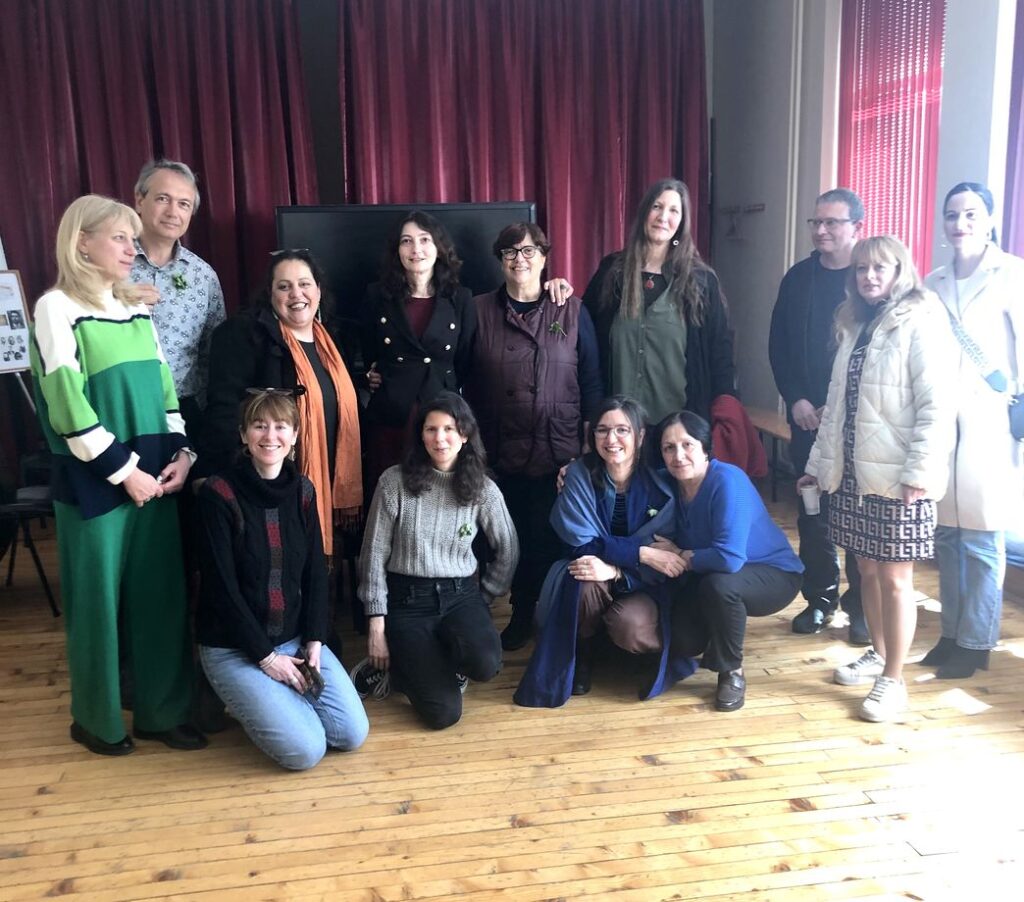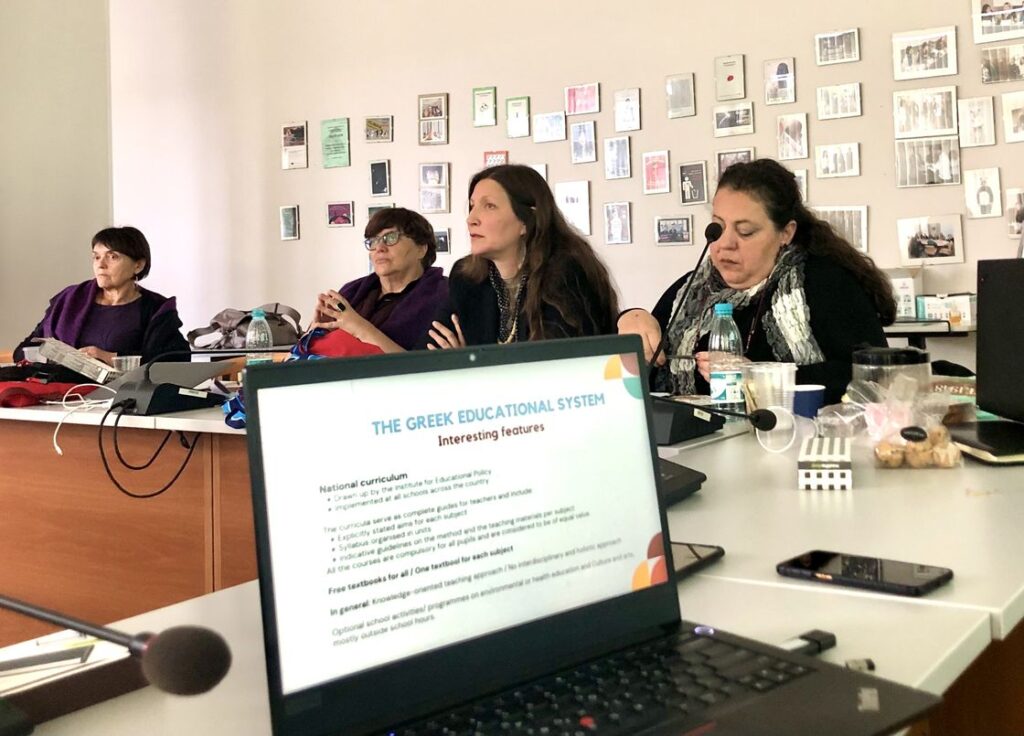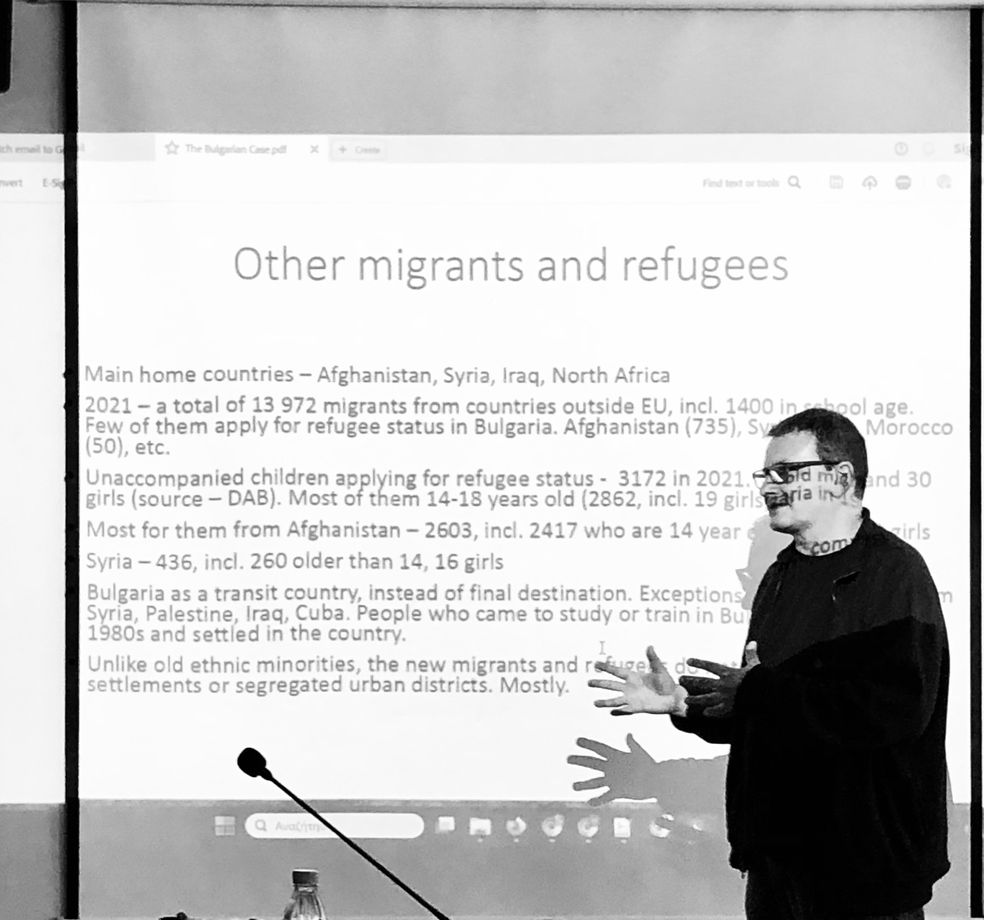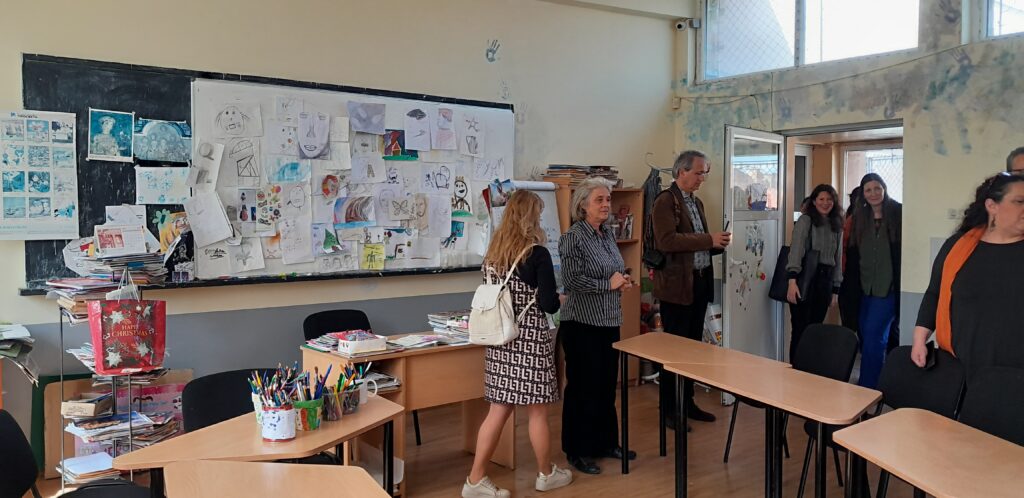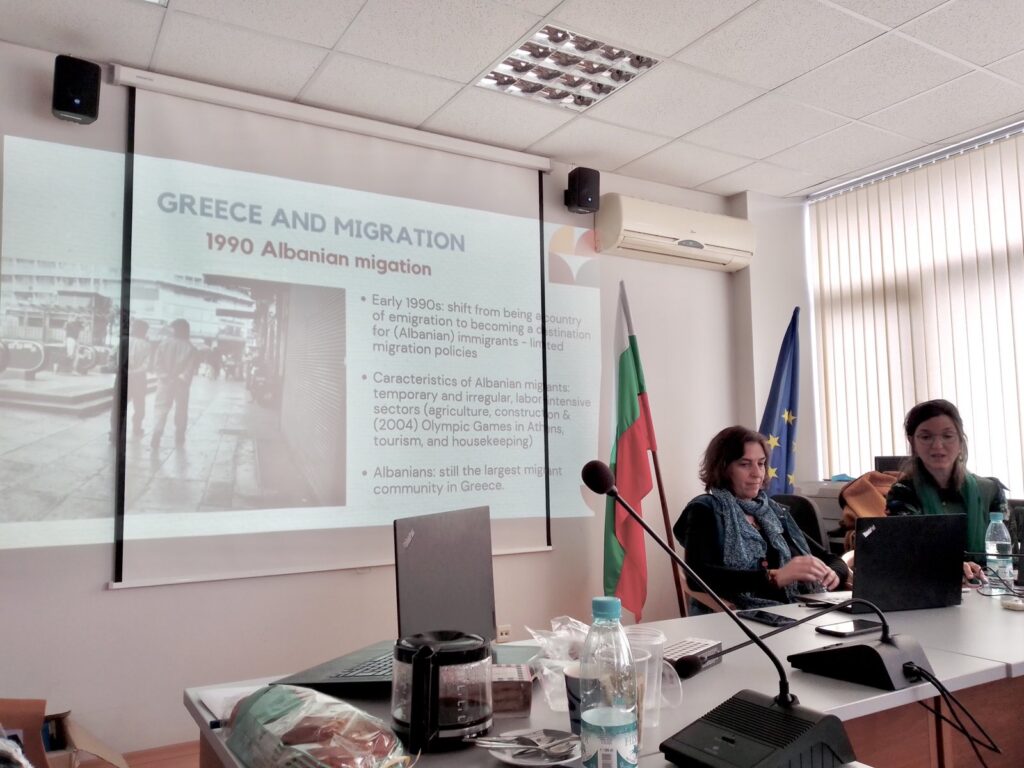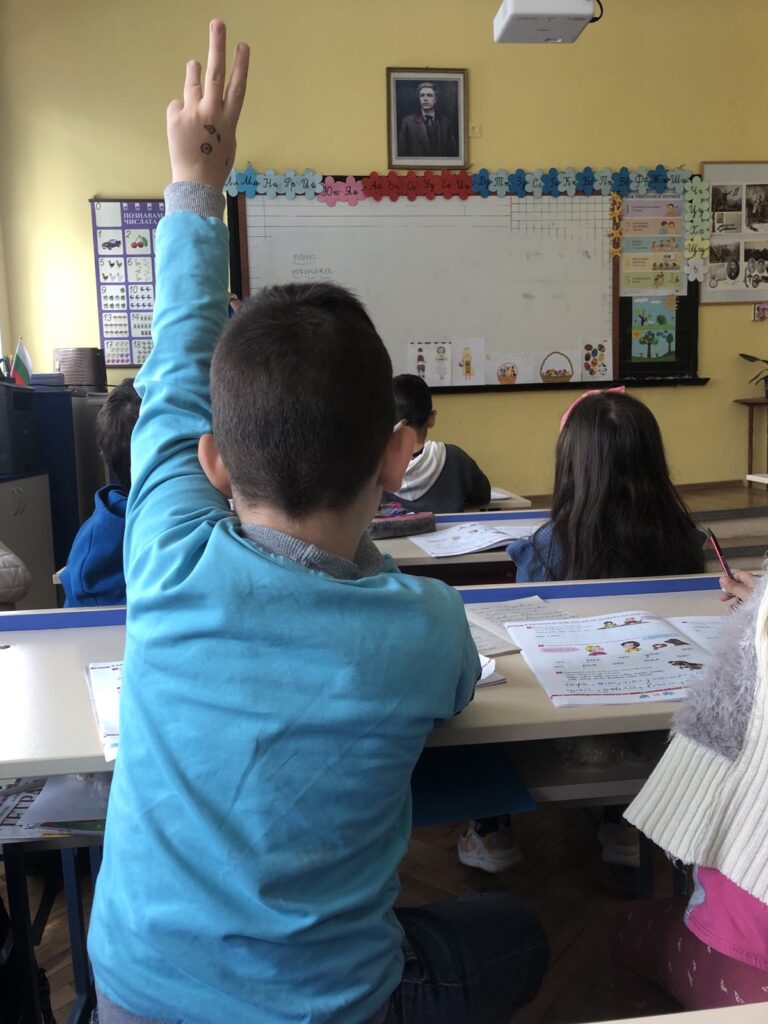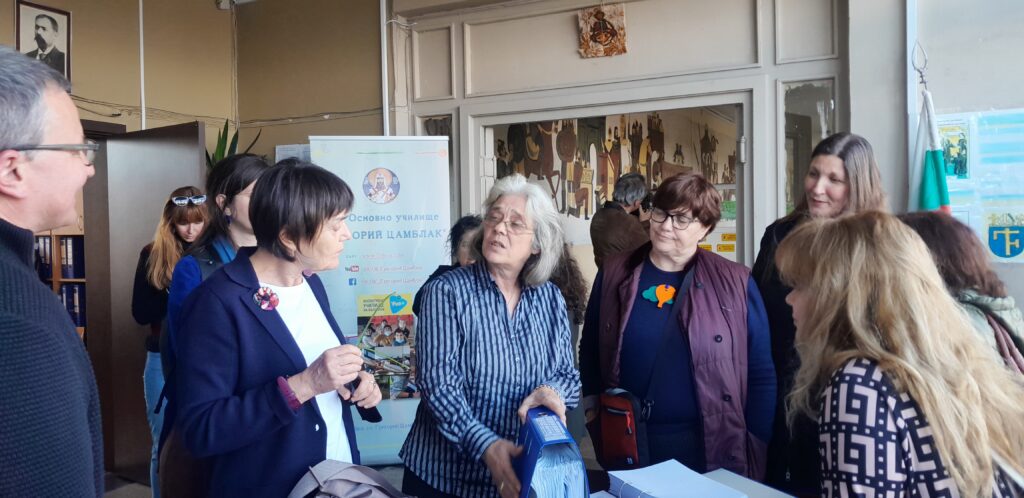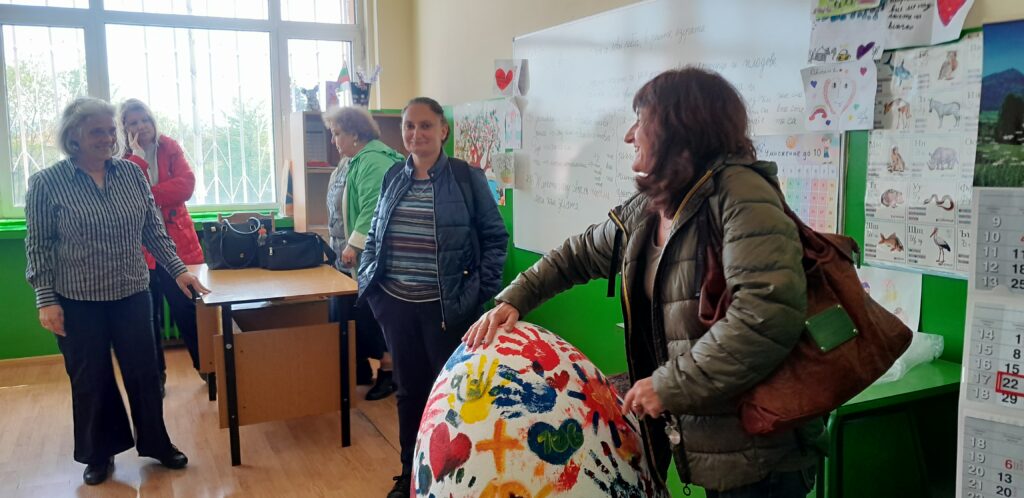The meeting was attended by Ilia Iliev, Dafina Lazarova and Niren Hasanova from the University of Sofia St. Kliment Ohridski (Bulgaria), that organized the meeting; Alexandra Androusou, Anna Apostolidou, Nelly Askouni, Ilektra Floropoulou, Elina Tsiroga and Matoula Papadimitriou, from the National and Kapodistrian University of Athens (Greece, leading partner); Pierre Johan Laffitte from the University of Paris 8 – Vincennes Saint-Denis (France); Nadianna Koutiva and Kalliopi Karlou from the Sociality Cooperative (Greece).
The programme of the meeting included visits to two schools in Sofia where students with migrant, refugee and minority backgrounds attend. These visits allowed us to understand the educational and pedagogical context in Bulgaria and to discuss with members of the Teachers’ Councils, the School Directors and some parents about issues of the educational process and the pedagogical tools used in these schools.
At school No.66, which is attended by a large number of children from Ukraine, Syria and Afghanistan, we were welcomed with music and songs prepared by students and teachers, and visited kindergarten and primary school classes, seeing in practice how they work. At primary school 106, we observed the targeted educational programme for Roma pupils, children with learning difficulties and refugee children, based on the arts, differentiated pedagogy, active parental participation and the role of the teacher-mediator. In the discussions with the teachers and the Director we exchanged information and perspectives on various inclusive educational practices in our countries. We also met with children attending different classes (maths, geography, history, language, English), in which the common thread was the multimodality of pedagogical tools and the emphasis on inclusion for all. We witnessed the regular teachers’ pedagogical meeting and finally, we danced and sang with children and teachers in the music and gymnastics class, experiencing in practice the acceptance, the sharing and the joy of creation.
These visits constituted the common frame of reference so that the scientific meeting for our common project to be illuminated by the pedagogical practices and the voices of the protagonists (students, teachers).
VOLARE aims to create an open digital repository of multimodal education that will host testimonies of people belonging to minority groups in Greece, Bulgaria and France. The project is a pedagogical proposal for a research pedagogical practice in higher education that utilizes human testimony, voice and biography as a source of knowledge, using an interdisciplinary and participatory methodology.
During our transnational workshop the three partners of the project presented the educational system and the refugee and migration context (historical development, data, challenges in relation to education) of their countries. The Sociality Cooperative shared its first ideas for the design of the website and the platform. Dafina Lazarova, member of the Sofia University team, presented the main points of the reflective approach to education and introduced us to the essence of our research project, which was to discuss the philosophy, structure and content of the multilingual platform to be created, emphasizing the methodology and ethics of collecting testimonies. Finally, we discussed the different/common practices in the field of intercultural and inclusive education in our countries, setting the basis for the axes of our next deliverable, which concerns the collection and evaluation of good practices and experimental methodologies in multimodal and inclusive education.
Many thanks to Ilia, Dafina and Niren for organizing the meeting and the experiential introduction to the history and culture of Bulgaria, as well as to the Directors and the Teachers’ Councils of schools No. 106 and 66 for the warm welcome and sharing. The VOLARE Team has started its creative journey – stay tuned!
